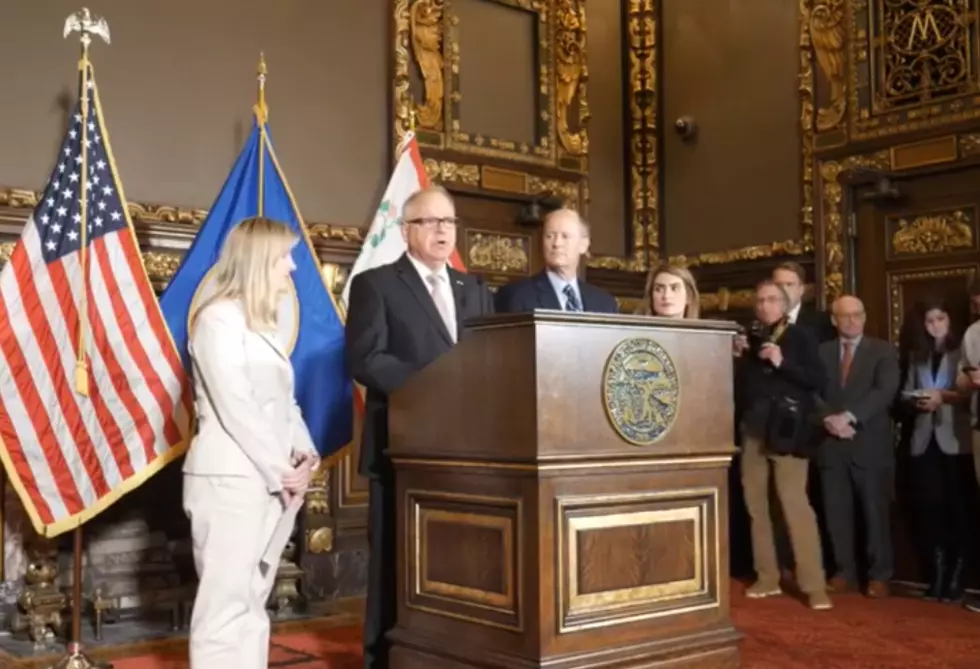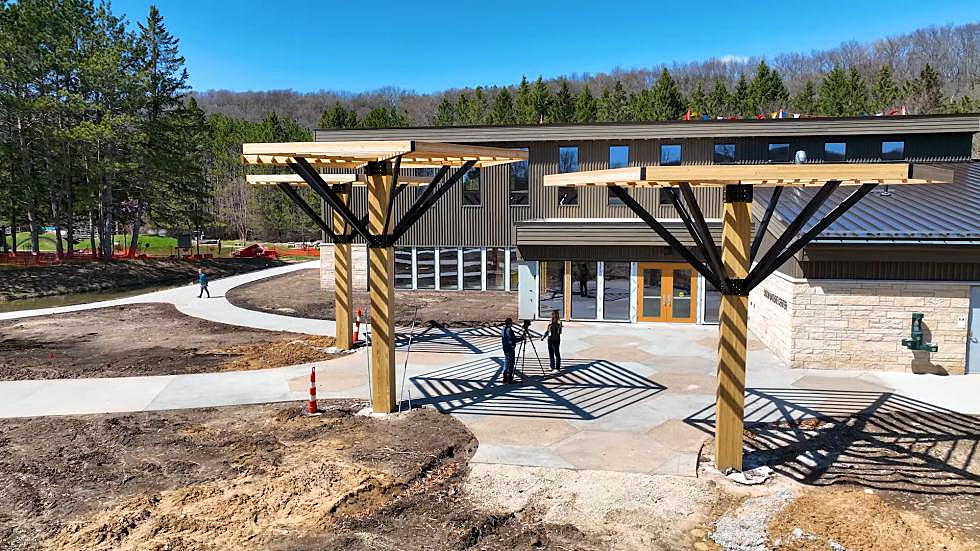
Governor and Senate Republicans Reach Deal on Minnesota Budget (UPDATED)
ST. PAUL, Minn. (AP) — Minnesota Gov. Tim Walz and top legislative leaders have reached a bipartisan budget agreement that drops the governor's proposed gasoline tax increase but gives middle-class Minnesotans an income tax cut and preserves most of an expiring tax that funds health care.
The Democratic governor, Republican Senate Majority Leader Paul Gazelka and Democratic House Speaker Melissa Hortman announced details Sunday, with just over 24 hours before Monday night's adjournment deadline. The leaders expect to call a one-day special session for Thursday to finish the work.
The deal also includes more money for education.
Walz said the negotiations were difficult and neither side got everything it wanted, but that it showed they were able to make divided government work.
Gazelka said the talks ended in a draw that will be good for Minnesota.
(Earlier version)
ST. PAUL, Minn. (AP) — Top legislative leaders and Democratic Gov. Tim Walz reached a budget deal Sunday as the clock ticked down on the 2019 legislative session, and it was expected that lawmakers would need a special session to finish their work.
Walz, Republican Senate Majority Leader Paul Gazelka and Democratic House Speaker Melissa Hortman scheduled a news conference for 6:30 p.m. to provide details.
None of the leaders had said much publicly during the past week about which issues remained unresolved as they struggled to agree on details of the state's next two-year budget. Walz, Gazelka and Hortman maintained what was dubbed a "cone of silence" as the closed-door talks continued. But their difficulties in reconciling the deep differences between the Democrats and Republicans on taxes, spending and policy made a special session inevitable.
The constitutional deadline for adjournment is Monday night, and none of the major budget bills had been completed by Sunday. The conference committees negotiating those bills were still waiting for the marching orders they needed to finish drafting their legislation.
Special sessions have been necessary more often than not in recent decades when control of the state government is divided. The last time lawmakers finished a budget on time was under Democratic Gov. Mark Dayton in 2013, when Democrats controlled the Legislature. But the three other budgets under Dayton required special sessions.
The Senate on Saturday approved a Republican plan for preventing a state government shutdown if the stalemate persisted, throwing down a challenge to House Democrats and Walz to either agree or take the blame for a shutdown when the current budget expires June 30. But Democrats had little to gain by taking a vote on the "lights on" proposal, given that Republicans would then have few incentives to keep negotiating.
Democratic House Minority Leader Tom Bakk dismissed the gambit as throwing in the towel and accused Republicans of bargaining in bad faith.
Republican House Minority Leader Kurt Daudt — who was speaker during the difficult budget negotiations of 2017 but has been on the outside looking in this time — issued a statement Sunday blaming Democrats for forcing a special session by insisting on tax increases.
More From KROC-AM









